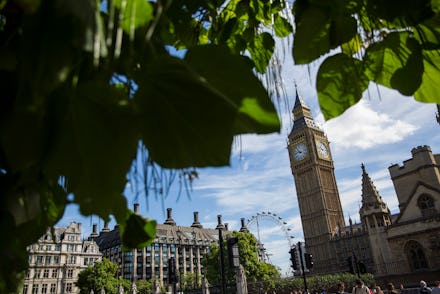The British pound keeps falling: Here's what that means

Ice-cream lovers across the United Kingdom breathed a collective sigh of relief Thursday when a dispute between Unilever — which distributes Ben & Jerry's — and Tesco, one of Britain's largest supermarket chains, was finally resolved.
The conflict was a result of the plunging British pound: Unilever, a global conglomerate that also makes Dove chocolate and Marmite, wanted Tesco to raise its prices 10% to compensate for the sterling's fall in price.
The final terms of the deal are unknown and likely involved a compromise, according to the Guardian.
But — while British consumers can enjoy their Phish Food again, for now at least — this "resolution" belies the growing economic danger faced by those who live in the United Kingdom.
The value of British currency has fallen 17% since the nation voted to leave the EU in June's Brexit referendum. One pound is now worth $1.22 — compared to nearly $1.50 before the Brexit vote — and at some British currency exchanges, one pound is already worth less than one euro.
A small number of market bettors even think the pound might soon reach "parity" with, or become equal in value to, the U.S. dollar for the first time ever.
The best explanation for the drop in the pound is fear and uncertainty caused by Brexit: Leaving the EU has many ramifications for investment, employment, trade and defense — and no one's quite sure yet of the long-term effects. In an attempt to stimulate the economy, the Bank of England has also begun "monetary easing," putting more money into the system, which also brings down the value of currency.
Because of the sterling's weakness, global companies like Unilever have wanted to charge more for their products, since the cash consumers are handing over is now worth much less.
Now, if you think ice cream or Marmite prices don't seem like a matter of national (or international) importance, think again: What's going on in the U.K. should be a wakeup call for anyone who believes free global trade is bad for individual countries.
Indeed, the negative consequences of the Brexit vote are still unfolding.
"No business wants to be the first to blame Brexit for a rise in prices," Justin King, of private equity firm Terra Firma, told the Guardian. "But once someone does, there will be a flood of companies because they will all be suffering."
In other words, it's about to be a very bad time to be a U.K. local who needs to buy basic necessities.
Of course, on the other hand, it is a great time to be a tourist visiting the U.K. or a foreign consumer with a taste for British products and/or luxury goods.
For example, if you had bought a British-designed £1,295 Burberry coat on referendum day, when the British pound was about $1.50, that jacket would have set you back more than $1,940. At today's exchange rate, you'd pay less than $1,580.
And certainly — as some market analysts point out — the drop in currency value has some silver linings for Britain. When your exports are cheap, foreigners start buying more of your products and that is good for business.
But a cheaper pound isn't the only effect of the Brexit vote. After splitting from the EU, the U.K. would likely also lose a number of trade benefits that it had before: like easy access to skilled European workers, for example.
On that score, economists are decidedly pessimistic.
"I don't think there's any amount of sterling depreciation that can shock-absorb for the loss of economic potential," George Magnus, senior economist at UBS told the Wall Street Journal.
In other words, an influx of crumpet-gorging tourists likely won't be enough to offset the Brexit's many negative effects.
Again, this is a lesson for those who espouse anti-free trade policies: The same local workers who get hurt in the short term by jobs lost overseas are also consumers — who get hurt in the long run by higher prices.